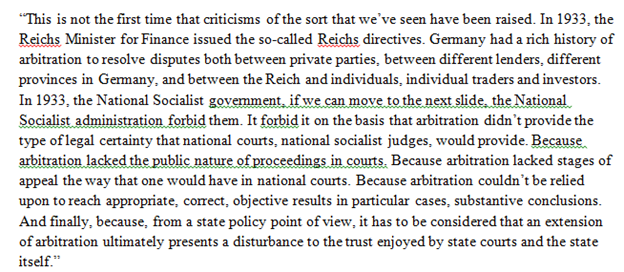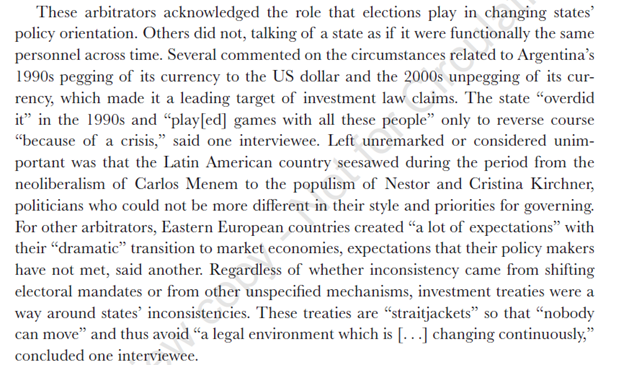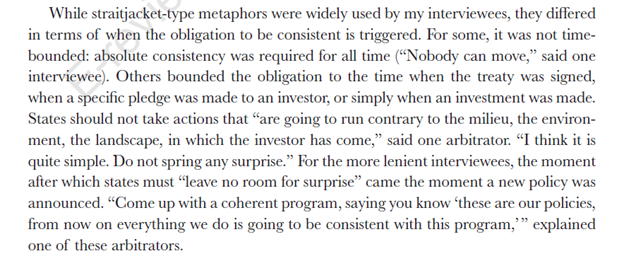
Investment law Twitter (yes, such a thing exists) has lit up over a recent video from the annual conference in January from the European Federation for Investment Law and Arbitration (EFILA). Thread…
https://twitter.com/proggie_329/status/1356970521049628673
Due to the pandemic, this conference, like many, went virtual this year. You can find the presentations here. The keynote speech was delivered by Gary Born, a prominent arbitrator in investor-state dispute settlement (ISDS).
efila.org/annual-confere…
efila.org/annual-confere…
As @goodhouses describes here, ISDS is a parallel legal system where multinational corporations can challenge host state governments over regulatory treatment, outside of national court systems.
themonkeycage.org/2015/11/invest…
themonkeycage.org/2015/11/invest…
According to data from @PluriCourts, Born tends to be selected by the multinational investors bringing suits against sovereigns. (In these cases, the challenged state also picks an arbitrator, while a third arbitrator chairs the case.)
pitad.org/index#detailed…
pitad.org/index#detailed…
ISDS has become increasingly controversial among lawmakers, civil society, and scholars. The system has been criticized by both Joe Biden and the Trump administration, as @_BvdM writes here.
https://twitter.com/SonjavanRenssen/status/1354115027616346115
The concern: that the mere possibility of large monetary damage awards over national policy encourages excessive litigation and perhaps even casts a chill on democratic/ sovereign decision-making…
washingtonpost.com/news/monkey-ca…
washingtonpost.com/news/monkey-ca…
That’s the cost. As for a benefit, @JBonnitcha @laugepoulsen @WaibelM09 and others have shown that there isn't a substantial / measurable / causally linked increase in foreign direct investment – the ostensible policy rationale for the sovereignty curbs.
global.oup.com/academic/produ…
global.oup.com/academic/produ…
The supposed purpose of Born’s talk was to respond to such critiques. However, instead of engaging with the substantial scholarship in the field, he cites two news articles by non-specialist journalists – one from 20 years ago. 
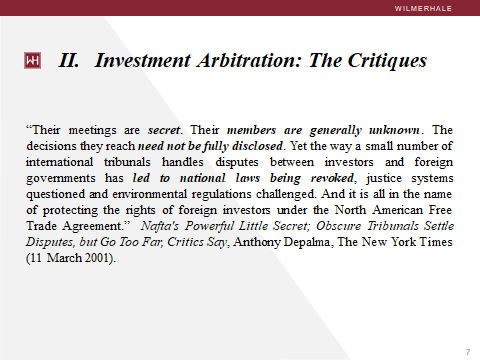
He then turned to critique a proposal by the European Union to establish a Multilateral Investment Court (MIC), which would make ad hoc investment arbitration look more like the World Trade Organization’s Appellate Body (AB). 
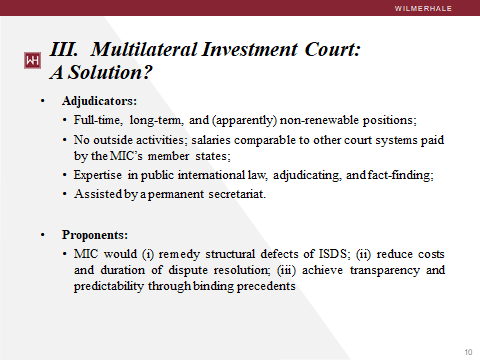
This is an odd choice. Among ISDS critics, the EU’s proceduralist proposal falls far short of the more substantive reforms they seek.
friendsoftheearth.eu/publication/th…
friendsoftheearth.eu/publication/th…
However, a major theme of Born’s lecture is that the MIC is worse than changing substantive standards. (Which is perhaps convenient, since the latter option does not have the weight of a significant number of states at the moment and is thus more hypothetical.) 
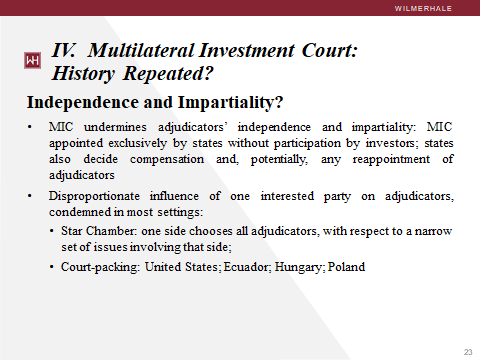
He has perfectly reasonable arguments against a MIC, including that ISDS has improved its record on transparency and other matters. However, not content to let his arguments stand on their own, he dials up the rhetoric to 11. At moment 2:20… 

Emphasis added there because, a) many would argue the coerced confessions part of the Star Chamber was really bad…
legalhistorymiscellany.com/2019/01/11/sta…
legalhistorymiscellany.com/2019/01/11/sta…
...b) what he’s describing as most abhorrent is precisely what entities like the Court of Federal Claims does – a body set up specifically to decide a narrow set of issues involving the government itself...
uscfc.uscourts.gov/history-of-the…
uscfc.uscourts.gov/history-of-the…
And c), because this is a multilateral body, the pickers of the MIC judges will be state members as a whole, not the defendant alone. (Unlike in ISDS as it operates now, actually.)
bilaterals.org/?appointing-au…
bilaterals.org/?appointing-au…
If it ended there, this would be a considerable rhetorical excess over what is essentially a process disagreement. But it went considerably further. Starting at minute 2:40:40, Born says… 

This Nazi comparison was not some slip of the tongue. Indeed, if you look at the video, it appears to be read from a script. 

It is unclear if he’s claiming firing arbitrators caused the Holocaust, or merely whether he’s saying that it’s a slippery slope from one to the next. Either way, it’s commentary that in other instances draws sharp condemnation.
washingtonpost.com/news/post-poli…
washingtonpost.com/news/post-poli…
What could explain such extreme rhetoric? My 2018 book – a grounded theory / historical institutionalist study based on interviews with ISDS arbitrators – offers a few explanations.
amazon.com/Judge-Knot-Dev…
amazon.com/Judge-Knot-Dev…
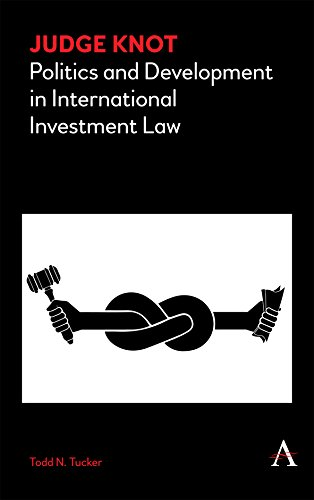
As noted above, Born tends to be appointed by investors. The incentives for arbitrators appointed by the case by investors who don't want to be chair (for which state approval would be directly/indirectly required) is to push hard rightward, as a way of advertising your services. 

But even among the broader arbitral pool, strange conceptions of states and democracies are quite common. I asked all of my interviewees what a state could do to avoid ISDS claims. Many of them said some version of the following: 

So it is not surprising that Born in particular and arbitrators in general would express an exaggerated sense of the import of arbitration -- so much so that they would be insensitive to basic norms of public policy conversations (e.g. Don't call your interlocutors Nazis.)
A further explanation for why an arbitrator would compare critics to Nazis: no one called him out on it.
https://twitter.com/laugepoulsen/status/1357262621699891200
Here’s the panel chair, seconds after the Nazi remark: “Thank you very much, Gary. There’s been a lot of food for thought in this lecture. It was an appropriate keynote and was actually quite erudite the way it has been devised and delivered.”
https://twitter.com/JBonnitcha/status/1357105842156228608
This is also unsurprising. As I documented in my book, one of the main ways that arbitrators get appointments is through word of mouth recommendations from other arbitrators. 
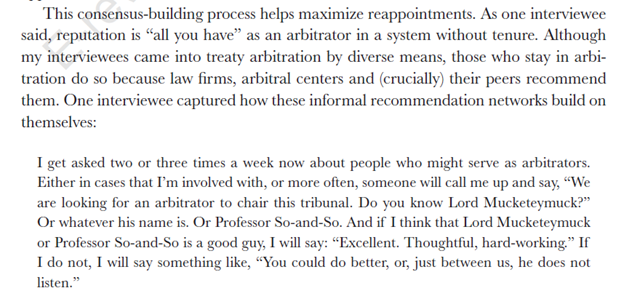
So even those that would disagree with the heated rhetoric would be loath to embarrass a fellow arbitrator by calling them on it. The extreme holds a lot of power, and in the tables in the book I show how these redounds disproportionately to the investor side. 
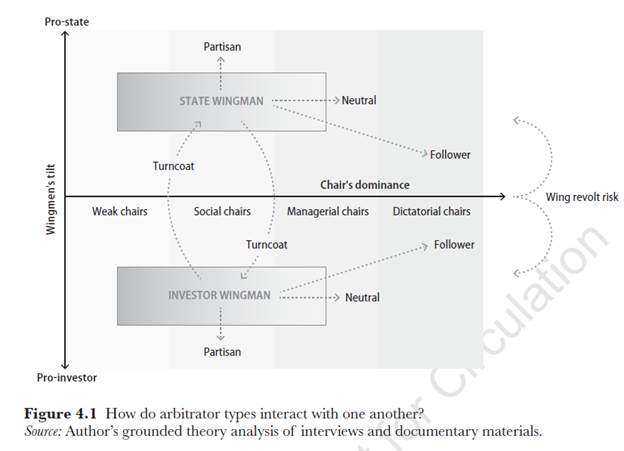
These dynamics help explain why Born in his presentation saves his sharpest words for the European Union’s MIC proposal. As I’ve argued, while ISDS critics do not see it as a solution, it could largely curb the basis of individual arbitrators’ power.
However, ISDS is not alone in a legal profession which promotes excessive clubiness. There's non-blind journal review...
jstor.org/stable/4289411…
jstor.org/stable/4289411…
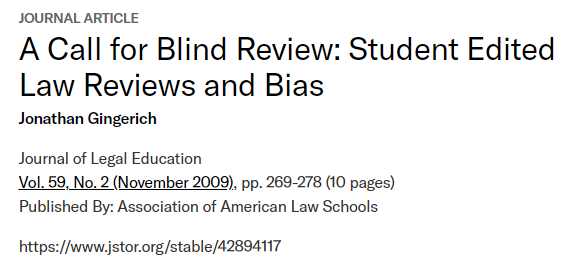
There's the way family members and students get clerkships...
newsweek.com/amy-chua-daugh…
newsweek.com/amy-chua-daugh…
And at international courts, there's mission creep and incremental use of precedent to expand courts' mission beyond what states intended...
thenation.com/article/archiv…
thenation.com/article/archiv…
And the way international courts develop distinct ideologies, as @ErikVoeten has written extensively about.
amazon.com/Ideology-Inter…
amazon.com/Ideology-Inter…
Ironically, some of these tendencies are illustrated by the very pre-Nazi German arbitrations that Born celebrates. (Again from Judge Knot.) 
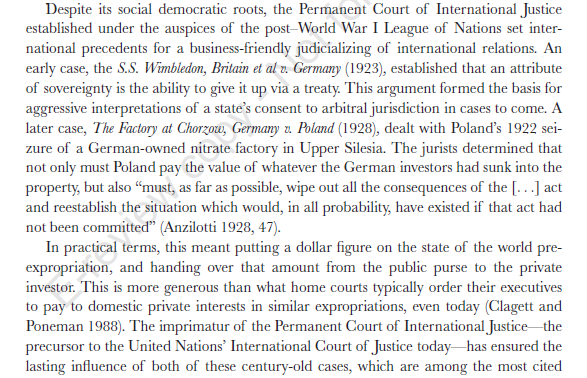
Those proceedings, against the backdrop of onerous Treaty of Versailles terms, generated pro-investor interpretations that go beyond what many states offer domestically then or now. Despite that, they live on in ISDS. 
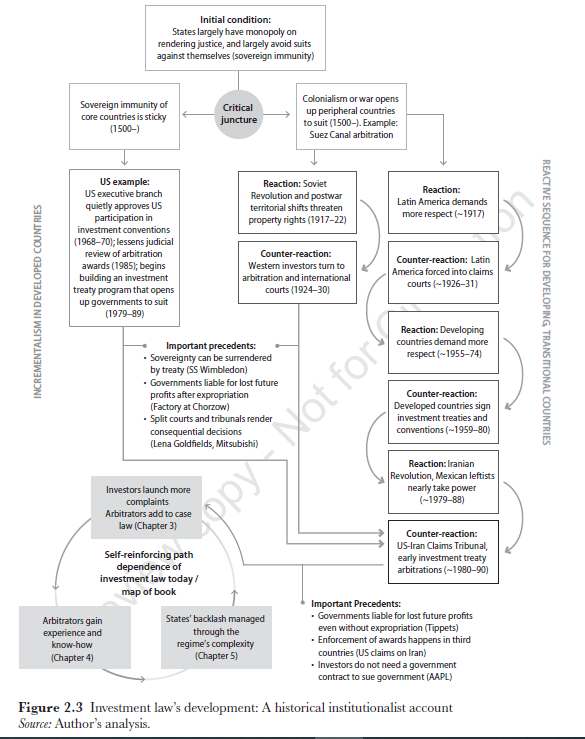
In short, the rhetoric is alarming but not surprising. It's also counterproductive, as it makes arguments to fix/expand/diversify arbitration rather than abolish it harder to maintain.
politico.com/agenda/story/2…
politico.com/agenda/story/2…
For those that prefer the above as a blog post, here you go: Explaining the Persistence of Extreme Rhetoric in ISDS.
toddntucker.medium.com/explaining-the…
toddntucker.medium.com/explaining-the…
• • •
Missing some Tweet in this thread? You can try to
force a refresh
